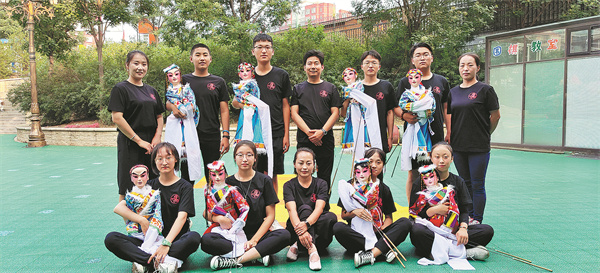

Wang says that, after these improvements, Xiaoyi stick puppets are more refined and delicate, with mechanisms to control them. He balances the traditions of puppet-making with a modern aesthetic, and his puppets have natural-looking features.
"It costs time and energy to create an exquisite piece of work. As the fruit of my painstaking work, these puppets are like my own children and I always take good care of them. I feel sad if one of my puppets gets damaged accidentally during a performance," he says.
Wang attributes his reforms of the puppet art to his early years as an apprentice in Xi'an. There, he once participated in the production of several costume puppet dramas for TV, coproduced by the Chinese mainland and Taiwan during the 2000s.
He recalls that the director from Taiwan had a very high standard for puppet plays, and craftspeople had to hone their manufacturing and performance skills. He brushed up his technique during the process.
"You had to make the puppet's faces look natural and delicate for the camera under the lighting, especially for close-ups. It's very different from a stage performance, in which the audience is sitting some distance away," he says.
"Puppeteers operated in a restricted area to accommodate the cameras, and ensured their performance was very smooth."
Handing down the skill
The more awards and titles Wang has won as a puppet maker, the more responsibility he feels, and the more he loves his profession.
He recalls that, in the early, difficult times, when his son had just been born, he had to drive a taxi after work to make ends meet.